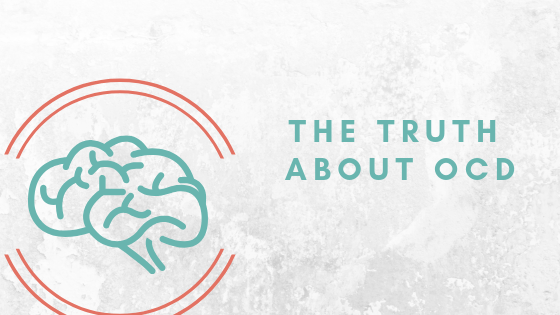The Truth About OCD
The Truth About OCD
The term “OCD” is thrown around a lot in day-to-day conversation. However, there are many misconceptions about what OCD actually is and what it is like.
Myths Surrounding OCD:
Myth 1:
Commonly, people hold the misconception that liking things to be neat and orderly means they have OCD. I’m sure you’ve heard people say, “I’m so OCD about that!”...maybe you have even used this phrase.
These statements are usually not said with bad intentions. However, this is greatly misinterpreting what OCD is really like.
Myth 2:
Another myth is that people with OCD fit into specific categories. Maybe you think of someone with OCD as washing their hands countless times per day, or maybe someone who checks and rechecks the stove.
While many people diagnosed with OCD may experience these behaviors, not every single person with OCD presents this way. Some people clean, some wash, some count, some check and recheck things, some do none of the above. Everyone is different in their experience.
Cautionary Note:
As a side note, these behaviors in and of themselves are also not definitive diagnoses of OCD and a formal diagnosis can only be made by a mental health professional upon several specific criteria being met.
The Facts:
Obsessive compulsive disorder, or OCD, is an anxiety disorder that is characterized by:
Obsessions - Repetitive thoughts, mental images, or urges
Compulsions - Repetitive behaviors that people feel urged to do in response to the obsessive thoughts
For a clinical diagnosis of OCD, these obsessions and compulsions must interfere with daily functioning.
Prevalence:
According to the National Institute on Mental Health, clinically diagnosed obsessive compulsive disorder is relatively rare, with only 1.2% of Americans having had clinical OCD in the past year and a lifetime prevalence of 2.3%.
Women are also at a greater risk for the development of OCD.
What is it Like?
While we can’t go into the mind of someone who is experiencing obsessive compulsive disorder, the video below shows how one person describes his experience with OCD. Please be aware that symptoms present differently from person to person, so his experiences may not be identical to someone else’s experiences.
Hudson Therapy is a Westchester County counseling and therapy practice located in White Plains, NY. We provide OCD treatment to children, teens and adults.


